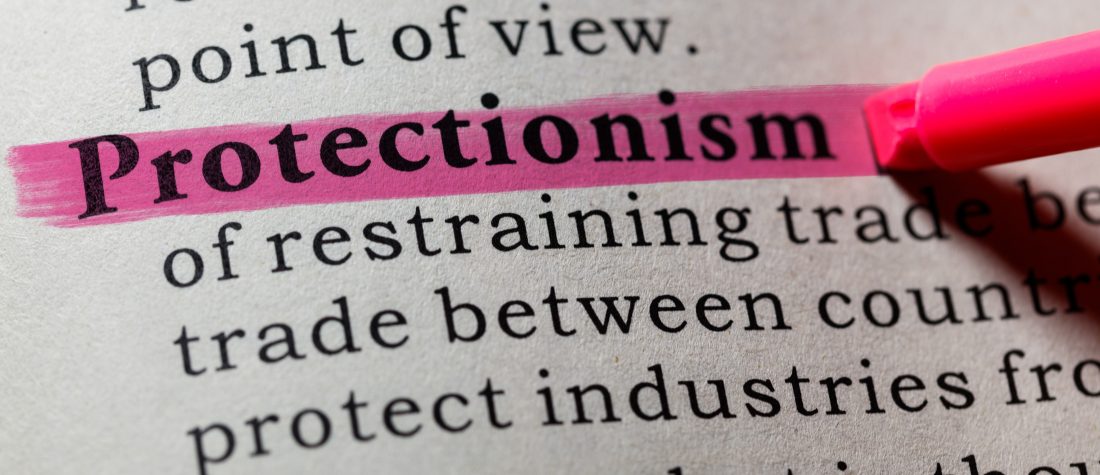We have recently seen the UK’s new post-Brexit trade powers in action. A deal between the UK and US governments has led to the withdrawal of tens of millions of pounds of damaging tariffs on UK products. Whisky, Cheese, and Beef will now resume their tariff-free (or low-tariff) status in exporting to the huge American market.
The tariffs are leftovers of the pre-Brexit era. The remaining EU-27 member states still have selected exports to the US, subjected to the same tariffs. This is the essence of the UK ‘taking back control’: the ability to regulate, direct, and strike deals independently of Brussels, in the UK’s national interest.
This deal was reached relatively easily; there was little opposition from lobby groups. However, bigger, sterner tests of the UK’s commitment to genuinely ‘leave’ the EU’s protectionist approach to trade remain. More specifically, non-tariff barriers (NTBs). These are the insidious enemies of free trade, the creeping regulations that make trade complex and costly, and can do more damage than tariffs and quotas, the blunt, 20th century tools of trade warfare.
There is good news and bad news on this front.
First, the bad news. The EU’s Renewable Energy Directive (RED) is one of the most-disliked pieces of regulation emerging from Brussels in recent years. There are myriad reasons for this, but it has become emblematic of a very Brussels approach to trade, which involves designing a policy and constructing evidence to suit the policy. The most-recent incarnation led to a WTO case filed against the EU supported by countries around the world including Indonesia, Malaysia, Colombia, Thailand and Honduras. The RED’s targeted attempt to block exports of palm oil-based renewables from Southeast Asia (because it is cheaper, more efficient and more popular in the EU than EU-grown biofuels) also led to trade retaliation that harmed exporters of whisky, and dairy products among others.
All of this was a reaction to an EU-designed methodology known as indirect land-use change (ILUC) that classified some products that the EU wanted to keep out of the market as ‘high risk’. This enraged trade partners in Southeast Asia – including those listed above – who saw it for the naked protectionism that it was. They went so far as to stall EU-ASEAN relations for 12 months until some diplomatic concessions were gained.
The UK’s Department for Transport plans now to follow the EU’s ILUC approach. This is despite the fact that the Department for International Trade has stated diplomatic relations with ASEAN are a priority, that it wishes to accede to the CPTPP (which contains four ASEAN members including Malaysia), and that it is also calling on UK exporters to target the region’s middle class.
Post-Brexit regulatory autonomy apparently includes repeating Brussels’ mistakes – including WTO suits. Fortunately, not all government departments are following this pattern.
The good news comes from DEFRA, which is pioneering a new approach to Due Diligence that requires firms to guarantee that no illegal deforestation – or other problems, such as labour rights abuses – takes place in UK-bound supply chains. This is a genuinely pioneering piece of post-Brexit legislation, for a number of reasons.
First, it is based on working with partner countries around the world, not demonizing them. DEFRA’s commitment to a legality standard means it can leverage the existing work done in partner countries to provide guarantees to UK businesses and consumers. Existing standards for good practice, such as Indonesia’s ISPO standard for sustainable palm oil, can be leveraged to reduce unnecessary complexity.
Second, it correctly identifies the real problem based on science and data, and not on protectionist politics. Deforestation in the Amazon region – primarily for beef and soy production – has drawn condemnation from leading scientists and experts, as well as from multiple world leaders including Boris Johnson. Several MPs have rightly focused on ensuring that the Due Diligence regulation would prevent such products gleaned from Amazon deforestation from entering the UK market.
Third, the UK Due Diligence regulation does not seek to copy the EU’s approach: it is based instead on evidence of what works and is achievable. For example, the EU’s politically motivated focus on palm oil is fortunately nowhere to be found: soy and beef are far more significant contributors to deforestation.
DfT could learn serious lessons from DEFRA’s innovative, facts-based approach. The ILUC proposal should be withdrawn and re-considered. In the post-COVID world, the UK requires growth (including export growth) more than anything else. Passing controversial new regulations dreamed up in Brussels is about the worst thing that could happen to growth – especially when it will almost certainly lead to retaliation from other countries, hurting British exports even further.
An independent trade policy can be – and should be – codependent with the drafting of domestic regulation. These two contrasting efforts demonstrate that clearly: Due Diligence, if passed in its current form, will improve trade relations and diplomatic links with key strategic partners such as Indonesia. ILUC, if passed, will turn that same nation, and potentially others, into critics that could stall and undermine the UK’s strategy in Asia. This would be an own goal at a time when the UK needs to move beyond the Continent.
The UK’s post-Brexit regulatory regime will take time to bed in. Key to its success will be to understand what works in the real world, and what does not. The EU has demonstrated, from the major pushback it received, that ILUC does not work. The UK would be foolhardy to copy it.


